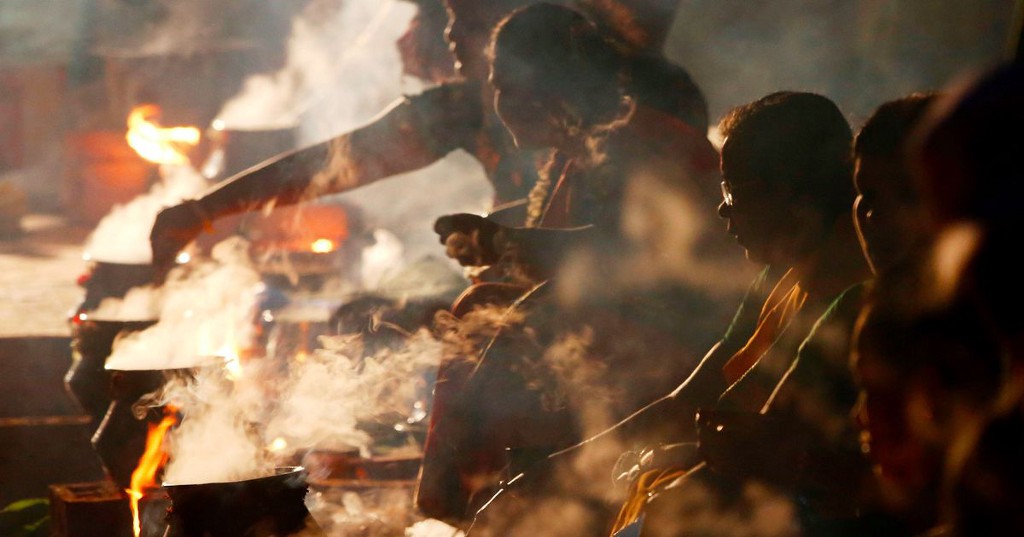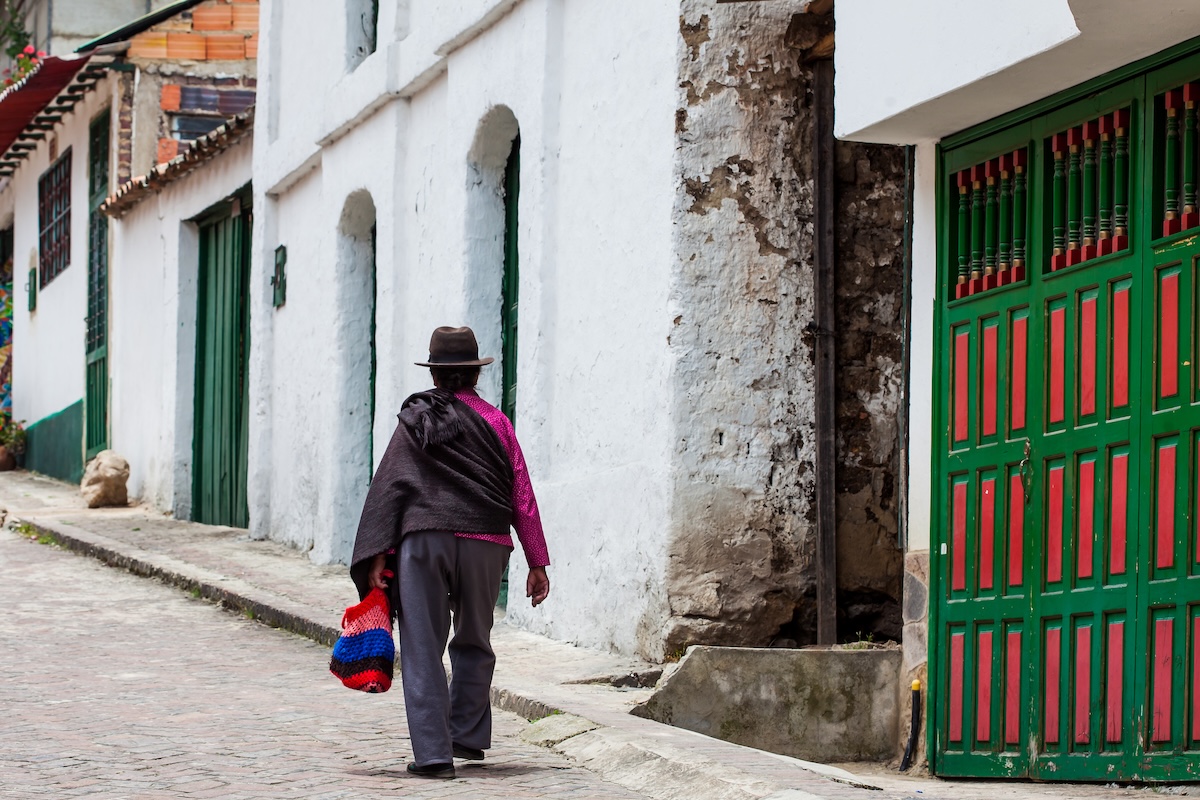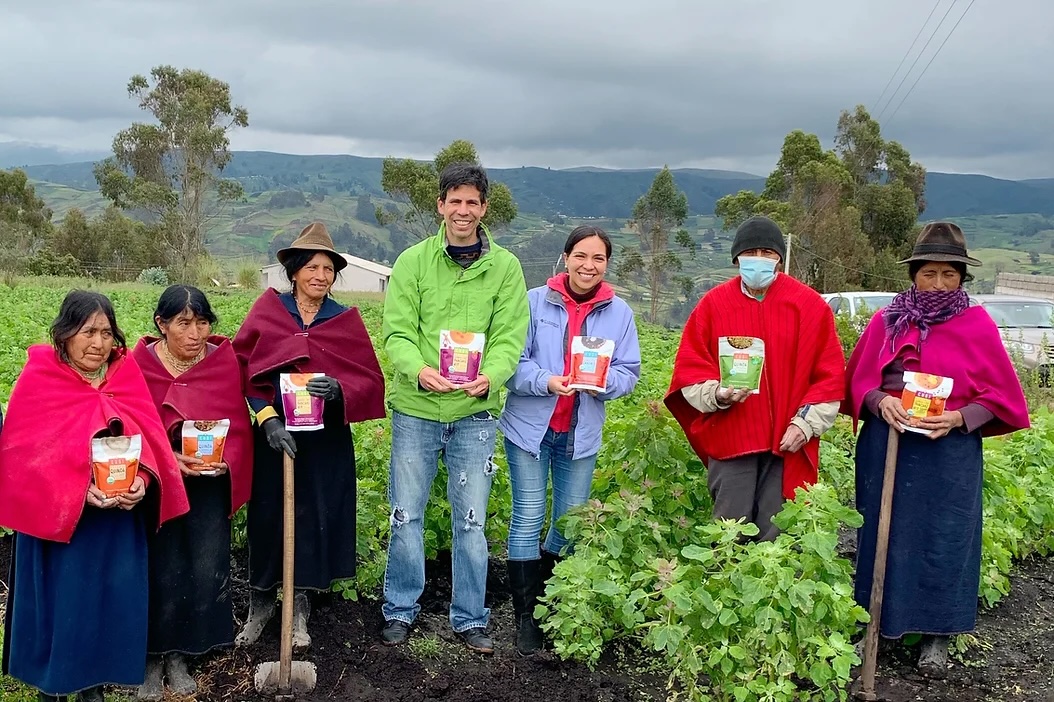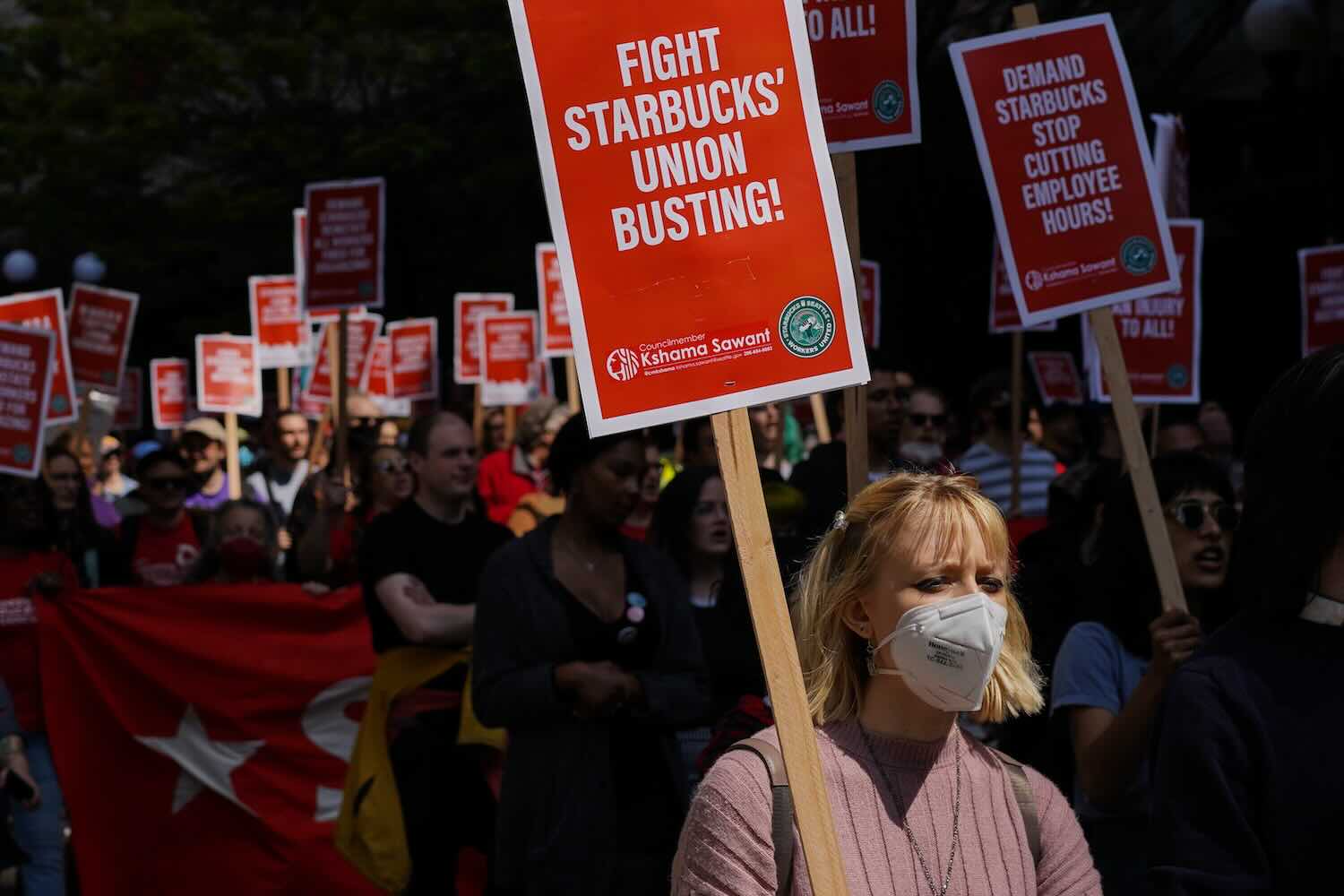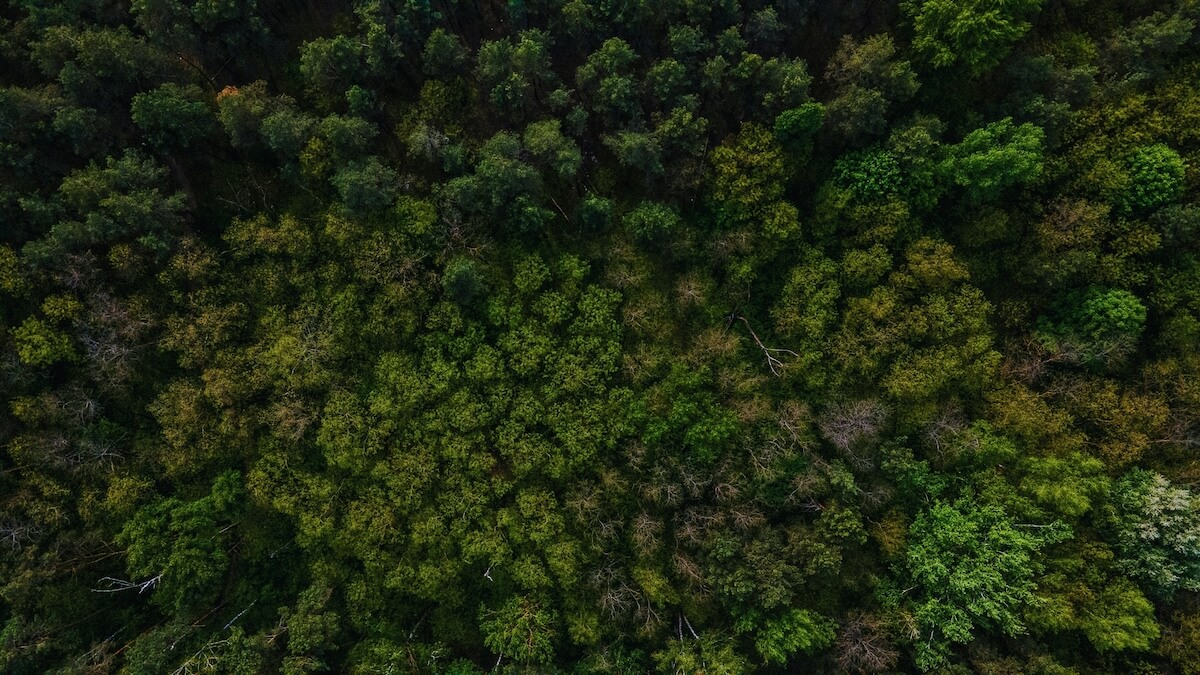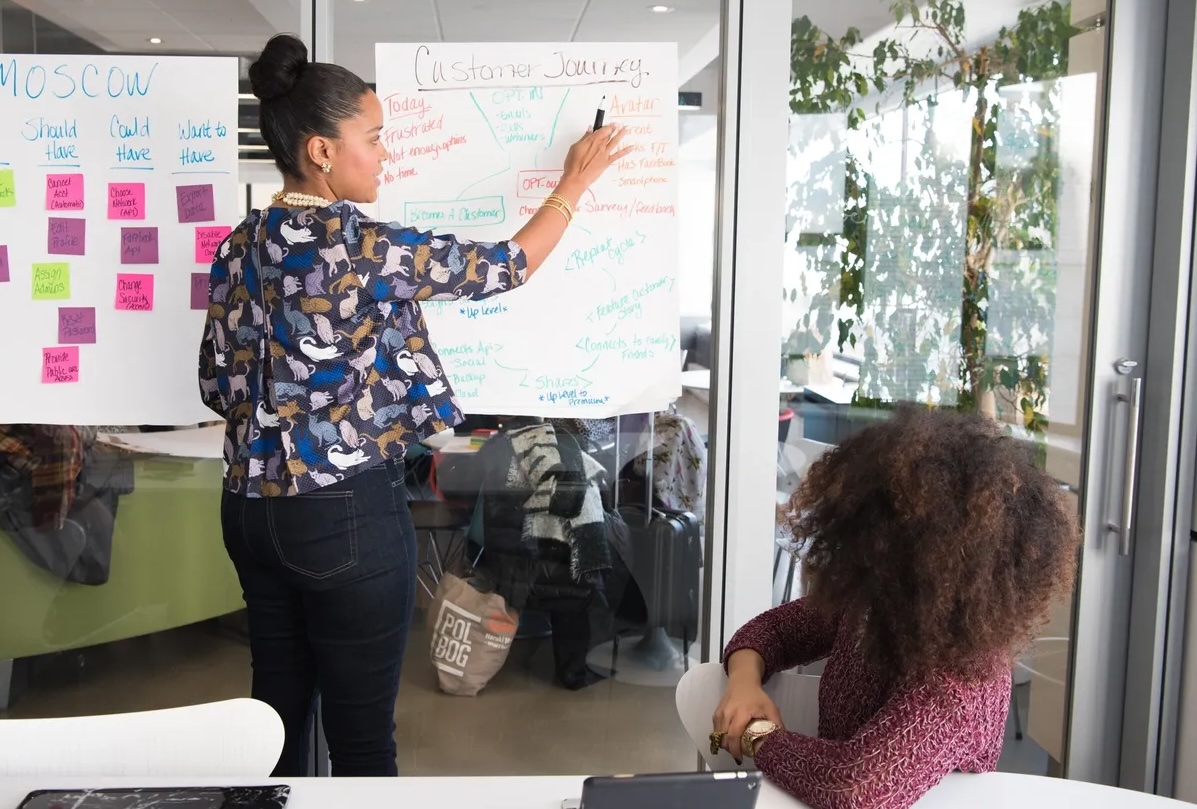Greetings, ImpactAlpha readers!
#Featured: ImpactAlpha Original
ImpactAlpha joins The Information Accelerator to drive revenue growth.Blockchain for good. Women rising in India. The $2.5 trillion SDG challenge. Reviving American communities. Financing climate action. The (impact investing) beats go on. As the scope and scale and, frankly, impact of impact investing expands, ImpactAlpha is working hard to cover more news beats and cover them better. As other news organizations lay off journalists, we want to hire them.
And so, we’re delighted to be part of the first cohort of the new media accelerator launched by The Information, an innovative and growing (profitably, it claims) technology-business publication. At the publication’s Subscriber Summit last week, founder and CEO Jessica Lessin announced ImpactAlpha and four other media companies (from among 188 applicants around the world) would get yearlong help from The Information in growing revenues and distribution.
Go deeper with “ImpactAlpha joins The Information Accelerator to drive revenue growth” by David Bank on ImpactAlpha.
ImpactAlpha joins The Information Accelerator to drive revenue growth
#WomenRising
Rural women represent a “triple dividend” for sustainable development.Climate change has a disproportionate impact on rural women and girls. But rural women and girls have an outsized ability to create climate-resilient solutions to social and economic challenges. The UN this month recognized the International Day of Rural Women, declaring “Women are powerful change agents to address climate change at scale.” Phumzile Mlambo-Ngcuka, executive director of UN Women, added, “Their knowledge and experience in food security and nutrition, land and natural resource management, bring additional resources to resilience against the negative effects of the changing climate on rural livelihoods.” Rural women — as active economic and political actors — represent “a cost-effective and transformative approach to the pursuit of the Sustainable Development Goals,” said the UN’s declaration.
ImpactAlpha’s special report, Women Rising in India, shows how women artisans and farmers are reviving rural economies and restoring ecosystem:
- Episode One: Meeting women who are leading India from what’s wrong to what’s working. A journey through rural and urban India finds women are overcoming barriers to build a more resilient and equitable India.
- Episode Two: How women artisans are reviving ancient crafts and rural livelihoods in modern India. Connected to the global market, pottery makers and weavers are raising — and the status of women.
- Episode Three: India’s women farmers are leading from subsistence to regeneration. The feminization of agriculture is bringing higher incomes to rural families.
#Dealflow: Follow the Money
Fiji to issue $50 million green bond. The Pacific nation will use proceeds of the bond to combat the effects of climate change. Fiji’s roughly 300 islands are vulnerable to rising sea levels and other climate change effects, which officials estimate could displace 20% of its population by 2050. “Changing weather patterns and severe weather events are threatening our development, our security and the Fijian way of life,” says Fiji’s Prime Minister Frank Bainimarama. Fiji’s will be the first sovereign green bond issued by a developing country to combat climate change. There are two tranches, Reuters reports: a five-year bond with a 4% coupon and a 13-year bond with a 6.3% coupon.
AgDevCo backs Rwanda’s Uzima Chicken. The impact investor, which focuses on early-stage agri-businesses in Africa, made a $3 million equity investment in Uzima. The company sells a breed of fast-growing day-old chicks to Rwandan farmers through a network of distributors. The effort has created 150 new jobs, 40% of which are held by women. Uzima’s model is based on a successful test in Ethiopia. Uzima wants to reach a million smallholder farmers in the next five years. AgDevCo’s investment will allow it to produce eight to 10 million chicks a year. In September, AgDevCo made a $1.8 million debt investment in Kapani, a Malawian poultry venture.
Owl Ventures raises $185 million second fund for edtech. The San Francisco-based venture firm, which focuses exclusively on education technologies, aims to take advantage of the growth in schools’ broadband connectivity. Owl’s $100 million first fund, launched in 2015, included a $15 million investment from the Bill & Melinda Gates Foundation. Its second fundwill likewise focus on K-12, higher education and professional-learning startups. Although Owl doesn’t describe itself as an impact investor, a number of its portfolio companies backed ventures have a clear impact model. For example, Newsela aims to improve global literacy through daily news content. Accelerate Learning offers curricula and professional development to encourage interest in the sciences. Owl’s founders previously worked together at Catamount Ventures, which invested in Revolution Foods, a provider of low-cost, healthy school lunches.
See all of ImpactAlpha’s recent #dealflow. Send deal tips and news to [email protected].
#Signals: Ahead of the Curve
Doing impact deals Down Under. Australia this year has been aggressively building up its impact-investing infrastructure, an effort championed by Prime Minister Malcolm Turnbull. Now a group of students behind the Impact Investment Hub are making it easier to find impact investing opportunities. The team has built a Current Deals Library, which provides snapshots of open investments in the country (it also has a Past-Deals Map.) Turnbull’s government administration released a discussion paper in January that outlined ways the government could foster Australia’s impact investing growth, including directly funding investments and co-funding them with state and local governments. Deals are getting done. State governments have backed several social-impact bonds this year, tackling homelessness, family services and other issues. The National Australia Bank rolled out a gender equality bond, and insurer QBE introduced an initiative that enables policyholders to invest a portion of their premiums in social causes. The Australian impact investing market is estimated to reach A$32 billion ($24 billion) in the next five years.
#2030: Long-Termism
Clean cooking is key to ending energy poverty by 2030. Growing access to electricity is a bright spot in the sustainable development agenda. Between 2000 and 2016, 500 million people gained access to electricity. That pace is expected to continue to 2030. That will still leave 674 million people (compared with 1.1 billion today), without access to reliable electricity, out of a global population of more than 8.5 billion. Nearly all of them will live in sub-Saharan Africa. Reaching them will require about $31 billion in investment.
Electricity is only part of the challenge. Households with 2.3 billion people cook with dirty fuels or biomass, which have negative health and environmental effects. Many women spend more than five hours per day collecting fuel and cooking for their households, and they and their children suffer most from the harmful effects of cooking smoke. “If we are to witness the kind of progress expected on electricity, clean cooking must be placed on a par with electricity access on the policy agenda,” states a new report from the International Energy Agency. The IEA says the leadership and influence of local women must be tapped for the development and distribution of clean cooking technologies. Other suggestions: tailor solutions to local needs and customs; educate people on the benefits of low-cost clean cooking technologies; emphasize versatile technologies and increase their usage; and provide subsidies when necessary to encourage their adoption.
Onward! Please send news and comments to [email protected].

